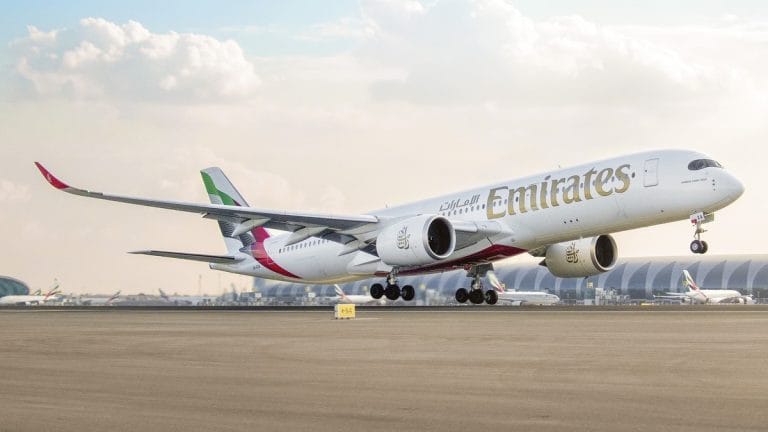🎧 Listen to This Article
Emirates Group has proven its financial resilience by delivering a record-setting full-year performance, even after becoming subject to the United Arab Emirates’ new corporate tax. Despite the 9% tax now in effect, the aviation giant reported substantial profits for the financial year ending March 31, 2025, solidifying its dominance in global aviation.
The tax, introduced in 2022 and implemented for businesses with fiscal years starting on or after June 1, 2023, marks the first time Emirates has paid corporate taxes in the UAE. The change was part of a broader push by the UAE government to enhance fiscal sustainability, align with international tax transparency standards, and prevent harmful tax practices.
But for Emirates, the impact was minimal.
“Despite introducing the UAE’s 9% corporate tax this year, the airline not only maintained profitability but substantially increased it,” the company stated.
Financial Highlights: Emirates Surges Ahead
According to the group’s published results:
- Group Pre-Tax Profit: AED 22.75 billion (USD $6.19 billion)
- Profit After Tax: AED 20.46 billion
- Emirates Airline Pre-Tax Profit: AED 21.2 billion (up 20% year-on-year)
- Emirates Airline Revenue: Record AED 127.9 billion (up 6%)
- Group Revenue: AED 145.4 billion (up 6%)
- EBITDA: AED 42.2 billion – the highest in company history
The company emphasized that it had prepared meticulously for the tax transition. “Our teams ran a massive internal programme, establishing clear governance and compliance protocols, which ensured business readiness,” Emirates said.
Group Chairman and CEO Sheikh Ahmed bin Saeed Al-Maktoum attributed the results to agility and market responsiveness:
“Through the year, Emirates and dnata were able to move quickly to meet the strong demand for air transport services across markets and win over customers.”
dnata Sees Record Revenue, Slight Dip in Profit
dnata, Emirates Group’s ground-handling and travel services division, also crossed a major milestone:
- dnata Revenue: Over AED 20 billion – a first for the division
- Net Profit: Just under AED 1.4 billion – a 2% decline
The dip in net profit was largely due to the corporate tax as well as one-time impairments in the UK and Germany.
Strategic Shift in UAE Business Environment
The UAE’s corporate tax marks a significant evolution in the country’s financial policy landscape. Previously viewed as a tax haven, the new 9% rate was introduced to help the nation achieve long-term development goals and bring its tax code in line with international standards set by the OECD.
While some businesses voiced concern over the shift, Emirates’ performance shows that well-prepared corporations can thrive under the new system.
A Blueprint for Resilience
Despite industry challenges ranging from volatile fuel prices to shifting global economic conditions, Emirates has emerged stronger than ever. The company’s ability to absorb the tax hit and outperform expectations demonstrates robust internal governance and a keen understanding of global market dynamics.
In a year that introduced major fiscal policy changes, Emirates Group not only adapted it excelled.
For further details, clarification, contributions, or any concerns regarding this article, please get in touch with us at editorial@tax.news. We value your feedback and are committed to providing accurate and timely information. Please note that our privacy policy will handle all inquiries.



